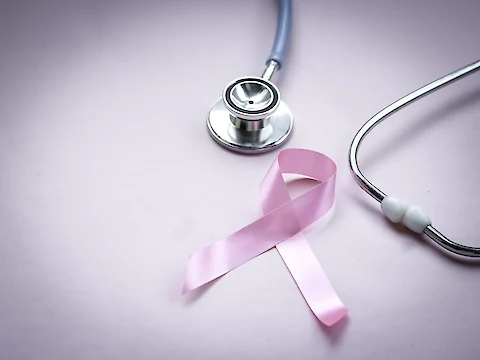
Breast exams are a crucial part of a healthy routine for every woman. Although breast cancer can be uncomfortable to speak about, having regular checkups is the best way to maintain health and monitor any changes one might experience in their breasts. Another benefit of regular breast exams is that it helps to detect breast cancer early, allowing for early treatment options.
With breast cancer awareness month at hand, it is crucial to understand how often women should get breast exams done as they age. Here's a guide:
How Often Should One Schedule Breast Exams?
Breast exams offer the first-line defense against breast cancer, and they come in several forms: clinical examination, mammograms, MRI, ultrasound, and self-examination. Consistently using a combination of these tests is the most effective way to detect breast cancer early.
All women should learn to perform a self-exam and repeat it monthly at home. The other exams ought to be conducted by a trained professional. How often one should receive professional testing depends mainly on their age and the associated risk.
Since the risk of developing breast cancer increases with age, here are the recommended exams for women with an average risk for different age categories.
Ages 20 to 39
Young women in their twenties and thirties should get a clinical breast exam at least once in three years.
Ages 40 to 44
Women in their early forties should receive clinical breast exams at least once in two years.
Ages 45 to 54
According to the American Cancer Society (ACS), women between 45 and 54 should get both a clinical breast exam and a mammogram once a year.
Ages 55 to 74
Women in their mid-fifties up to mid-seventies should continue yearly mammograms.
Ages 75 and Above
Women in their mid-seventies and above should first discuss their circumstances with their doctor before going for breast cancer screening.
Women at a Higher Than Average Risk
Women with BRCA gene mutations and those with a family history of breast cancer are at a higher risk. Here are some universal guidelines on how often they need breast exams:
- Begin screening by age forty, if not earlier
- Get both an MRI and a mammogram
- Be screened every year
- Discuss their medical history and individual situation with their healthcare provider
Factors That Might Affect How Often One Should Get Breast Exams
Whether you live in Santa Monica, Los Angeles, Pacific Palisades, and Marina del Rey, California, or anywhere in the world, there are common factors that affect how often women schedule breast exams:
- Forgetting to do regular checks
- Absence of any signs after self-examination
- Lack of recognition of the related signs after a self-exam
- Sometimes self-exams raise issues with how body-confident women feel. Some are dissatisfied with their breast size and thus have lower confidence in noticing any changes in their breast.
- Some women are afraid that they might have signs of breast cancer, so they avoid breast exams.
- Lack of support from friends and family after a previous breast exam also makes some women avoid regular exams.
Breast Exams for Men
Although rare, men can also get breast cancer. About 1 out of 100 breast cancers diagnosed in the U.S. is found in a man. The chances of getting breast cancer in men also increase with age. Here are some things that raise the odds of male breast cancer:
- History of radiation therapy treatment to the chest
- Breast cancer in a close female relative
- Taking estrogen
- Obesity
- Enlarged breasts due to hormone or drug treatments
- Liver cirrhosis
- Klinefelter syndrome – a rare genetic condition where a man has an extra X chromosome
- Inheritance of BRCA1/2 genes
Men with the above risk factors should consider doing a mammogram at least once every year.
Bottom Line
All genders are at risk of developing breast cancer, and frequent breast exams are the best way to detect breast cancer early. With breast awareness month here, the best time for women in the age categories aforementioned and men with an increased risk of developing breast cancer is now.
If you live in or around Santa Monica, Los Angeles, Pacific Palisades, and Marina del Rey (all in CA) and require in-home care services for your senior loved one, do not hesitate to contact us at Senior Helpers of Santa Monica. We offer comprehensive services and programs to support your senior loved one.